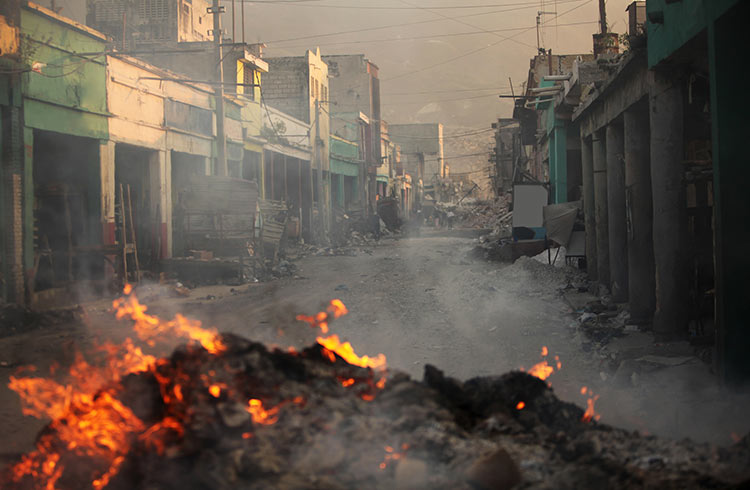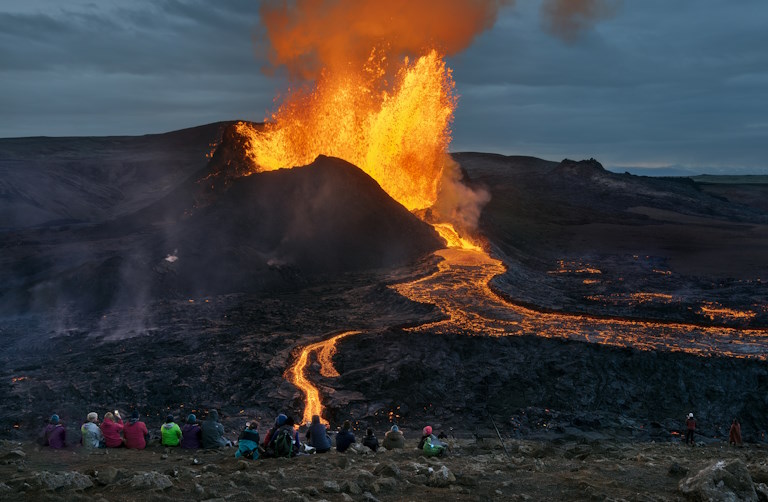How to Stay Safe When an Earthquake Strikes Haiti
Haiti sits within a seismically active area of the Caribbean, not far from the boundary of the Caribbean and North American tectonic plates. This means earthquakes are a risk to the country.
 Photo © Getty Images/1001nights
Photo © Getty Images/1001nights
Following the devastation of the 7.0 magnitude earthquake that damaged Haiti in 2010, here are a number of travel safety tips if you find yourself in an area affected by an earthquake.
Safety tips if you are in an affected area
If you are injured or sick?
If you are injured or fall ill, seek medical aid and contact your friends, family and travel insurance provider. Keep in mind that any functioning hospitals and clinics will be busy caring for people who are also injured and/or sick following a strong earthquake.
Injuries
The risk of injury is high. If you anticipate the need to travel to a disaster-affected area you should wear sturdy footwear to protect your feet from injury. Tetanus is a potential health threat for cuts and grazes. Any wound, cut, or animal bites should be immediately cleansed with soap and clean water. Seek rapid medical attention if you become injured.
Wash your Hands
Wash your hands often using soap and water to help prevent the spread of disease. Waterless alcohol-based hand rubs may be used when soap and/or water are not available and hands are not visibly soiled.
What can I eat or drink?
Natural disasters can disrupt water supplies and sewage systems. If bottled water is not available, water should be boiled or disinfected. For more information refer to the CDC website.
Food should be carefully chosen to reduce the risk of getting gastrointestinal illness. Avoid salads, uncooked vegetables and milk products, such as cheese. Ensure your food is freshly cooked and has not been sitting around. Food that have been cooked, are still hot and fruit that has been washed in clean water and then peeled by the traveler personally are safer to eat.
What if I get diarrhea?
Gastroenteritis outbreaks can occur following a disaster. Diarrhea may be accompanied by a high fever or passing blood in the diarrhea. Replacing lost fluids by drinking clean water is important or the use of oral rehydration solutions. It is also worth packing antibiotics before you depart for Haiti, as medications can be scarce or non existent.
Insects
Bites can be prevented through combined use of insect repellent and barrier methods such as wearing long-sleeved shirts and long pants when. Insect Repellent containing DEET should be used at all times.
Ensure you have been immunized for Tetanus in the past five years.
Types of things to watch out for after an earthquake
Travelers should be careful to avoid downed power lines. Battery-powered flashlights and lanterns, rather than candles, gas lanterns, or torches, should be used to avoid accidental fires or burns. Keep your personal belongings especially your passport and money on your person or in a safe place close to you.
Environmental Hazards
Be aware of what is happening around you. Following a disaster there will likely be rapidly moving water. Lung infections may occur after inhalation of sea water. Disasters resulting in massive structural damage can also result in exposure to chemical or biologic contaminants (asbestos).
Environment tips to remember: Both hot and cold extremes in temperature can pose a danger. Heat-related illness, such as heat stroke, can even be fatal. Remember to wear your sunglasses, sunscreen and a hat to protect you from the sun. Evenings can become chilly in Haiti, so have a pullover or waterproof jacket available. Keep you fluid intake up with clean water during the day. Try to keep a dry change of clothing handy to change into. This will help in keeping you warm and preventing heat loss.
Stay calm
In a situation like this, you may become extremely stressed or begin to panic. This is completely normal. Here are a few coping mechanisms to try your best to stay calm until help arrives:
- Keep an item of comfort nearby such as a family photo, listen to your favorite music or keep an item of spiritual or religious significance
- Call home and your country's Consulate or Embassy to let them know where you are, if you are alright and if you need any assistance
- Call your travel insurance provider's emergency assistance number should you need immediate attention.
When you get out of there or get back home
If you become unwell within six weeks of returning with fever, rash, respiratory illness or any other unusual symptoms seek medical attention and tell them that you were recently in a disaster affected region.
An important note for volunteers
Please only engage in direct travel to Haiti (or any disaster-affected regions) as part of an established charity or organization who can demonstrate that they have proper logistical and security support. Many good hearted people want to rush in and ‘do something' in the event of a natural disaster, such as the earthquake that hit Haiti.
Although these are very admirable instincts this is often the wrong thing to do. In the immediate hours and days following a catastrophe, aid agencies, governments and international organizations enact pre-arranged disaster plans involving very experienced and specialized staff with full logistical support.
Getting together with a group of friends or just jetting to an area like this on your own can create even more problems on the ground for them and it is potentially highly dangerous for you.
Related articles
Simple and flexible travel insurance
You can buy at home or while traveling, and claim online from anywhere in the world. With 150+ adventure activities covered and 24/7 emergency assistance.
Get a quote
No Comments